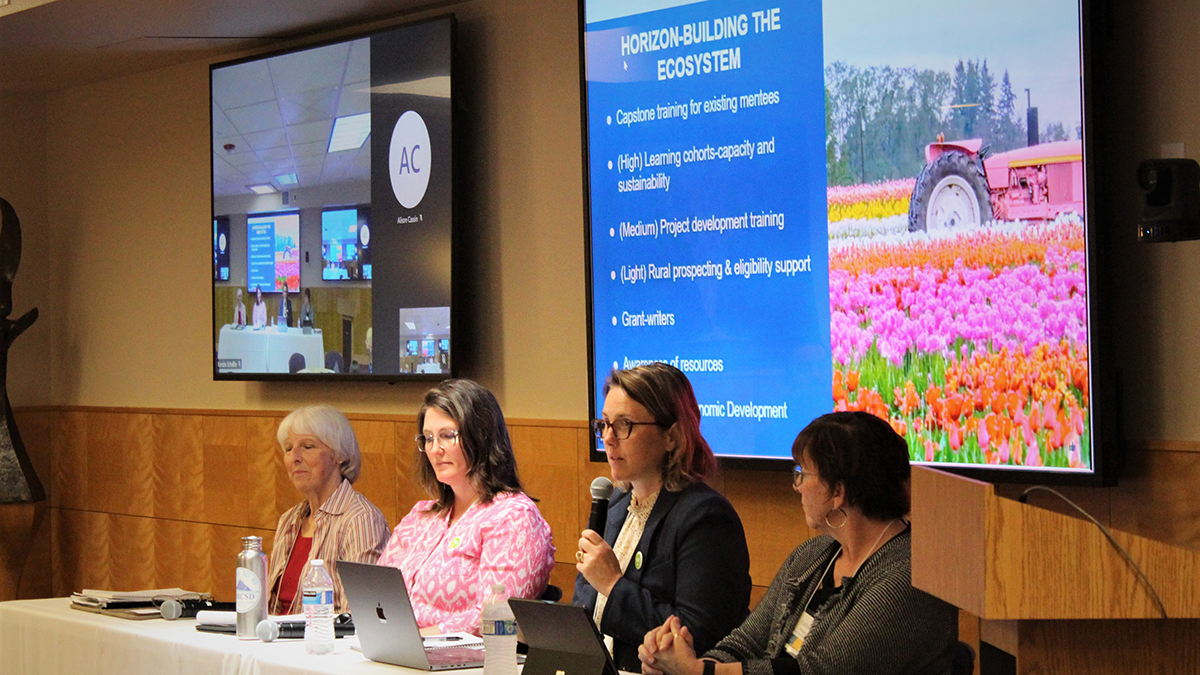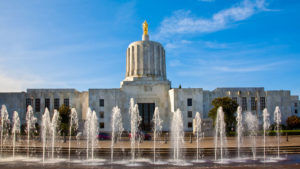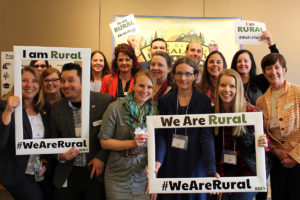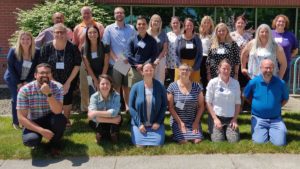RDI was honored to host Rural Forward: Toward Rural Power and Prosperity last month in partnership with the Reser Family Foundation. The event explored systems change in rural Oregon and brought together foundations and organizations to discuss the complexity of rural issues and develop deeper connections.
The morning session, “Bringing Federal Dollars to Rural: Working Together for Long-Term Community Vitality,” featured Speakers and Panelists:
- Kathleen Flanagan, The Ford Family Foundation
- Rachael Maddock-Hughes, Sequoia Consulting
- Jessica Metta, Mid-Columbia Economic Development District
- Gloria Miller, Pine Grove Rural Water District
This session focused on research funded by The Ford Family Foundation to remove barriers for unprecedented federal funding programs.
“One time funding is great, of course, but as I just mentioned, these projects take sometimes a decade, and that’s where long-term relationship building is really needed to help our most rural communities feel comfortable in taking on these big projects and improving their communities… It’s that long-term capacity building that’s really needed to make a difference.” – Jessica Metta, Mid-Columbia Economic Development District
The afternoon panel, “How Do Rural Narratives Shape Rural Power?” highlighted research from Foundations for a Better Oregon and featured:
- Janet Soto Rodriguez, Foundations for a Better Oregon
- Louis Wheatley, Foundations for a Better Oregon
- Commissioner Leti Moretti, Hood River County Board of Commissioners
- Jessie Hecocta, Klamath Tribal Member, Entrepreneur and Community Leader
This session provided an opportunity to discuss common misconceptions about rural spaces and ways to shift the narrative. We are grateful to all who participated and reflected on actions that can be taken in organizations and communities across Oregon.
“The problem is getting everybody at the table who needs to be at that story together. That’s the complexity and the discomfort. But that’s how the narrative is created. As we tell our stories together, we come up with a narrative. We don’t try to sell somebody what we feel the narrative should be.” – Jessie Hecocta, Klamath Tribal Member, Entrepreneur and Community Leader
Many thanks to The Reser Family Foundation for supporting and hosting this event, to the excellent panelists for sharing their research and experiences, and to The Ford Family Foundation, Foundations for a Better Oregon, and Business Oregon for their generous support and participation. We are grateful to all who participated and reflected on actions that can be taken in organizations and communities across Oregon.




